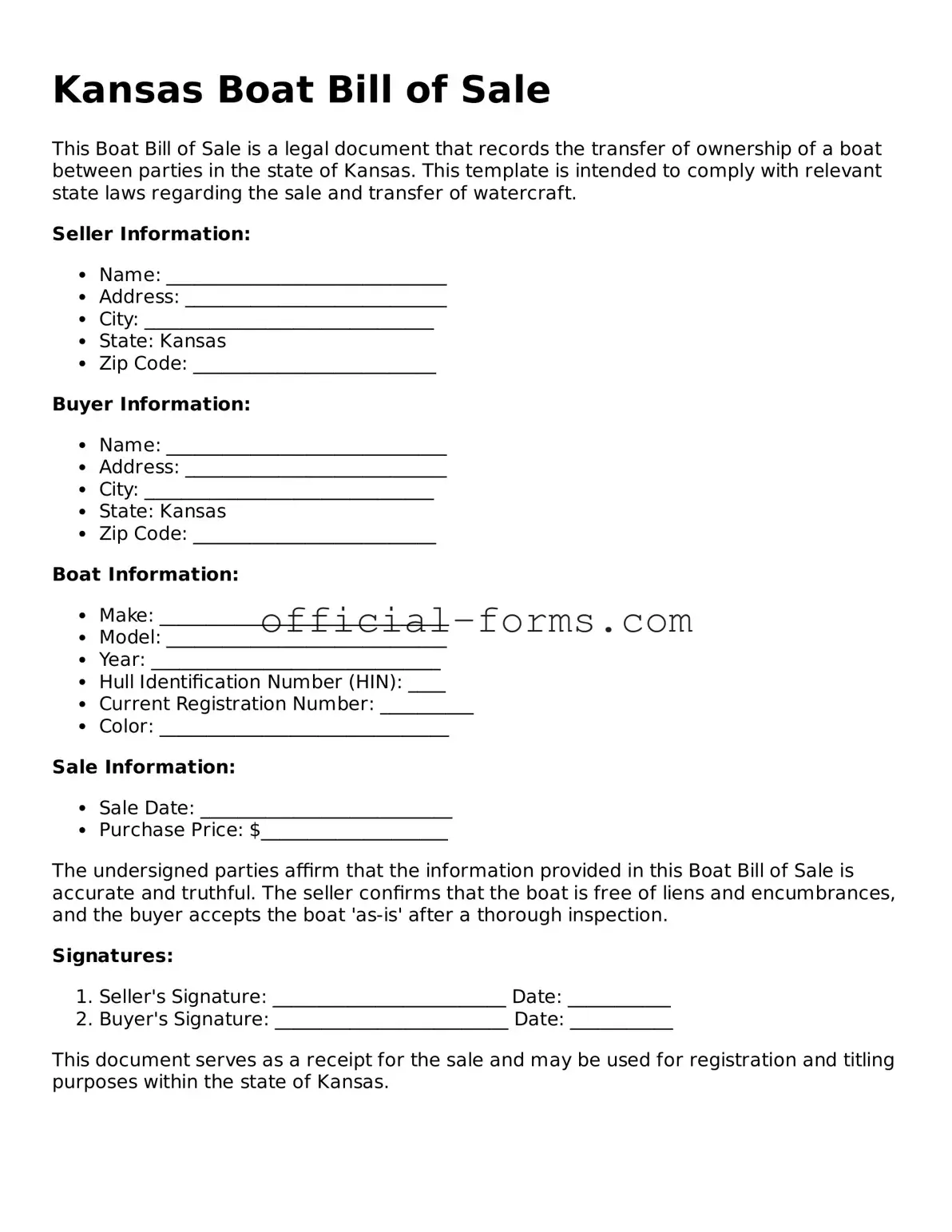Filling out the Kansas Boat Bill of Sale form is a straightforward process, yet many people make common mistakes that can lead to complications down the line. One frequent error is failing to include all necessary information. This includes the names and addresses of both the buyer and seller, as well as a complete description of the boat. Omitting any of these details can render the bill of sale invalid.
Another common mistake is not accurately documenting the boat's hull identification number (HIN). The HIN is crucial for identifying the boat and ensuring that it is not stolen. A missing or incorrect HIN can create legal issues, particularly if the boat is later involved in a dispute or theft claim.
People often overlook the importance of including the sale price. The bill of sale should clearly state the amount paid for the boat. This information is not only essential for record-keeping but also for tax purposes. Failing to list the sale price can lead to confusion and potential tax liabilities.
Many individuals neglect to sign the document. Both the buyer and seller must sign the bill of sale for it to be legally binding. Without signatures, the document may not hold up in court, should any disputes arise later.
Another mistake involves not dating the bill of sale. The date of the transaction is critical for establishing ownership and can affect the timeline for any legal claims. Without a date, it becomes difficult to prove when the sale occurred.
Some people also forget to keep a copy of the bill of sale for their records. Retaining a copy is essential for both parties. It serves as proof of the transaction and can be useful for future reference, especially when registering the boat or for insurance purposes.
Additionally, individuals may not provide complete information about the boat’s condition. A detailed description of any damages or repairs can protect both the buyer and seller. If the condition is misrepresented, it can lead to disputes and potential legal action.
Another mistake is not checking local regulations regarding boat sales. Each state may have specific requirements for the bill of sale. Failing to comply with these regulations can result in penalties or complications during the registration process.
People sometimes rush through the process, leading to careless errors. Taking the time to carefully review the completed form can prevent mistakes that might complicate the sale or lead to legal issues later.
Lastly, not consulting with a legal expert when needed can be a significant oversight. While the form may seem simple, having clarity on the legal implications of the sale can save both parties from future headaches. Seeking advice can ensure that all aspects of the transaction are handled correctly.

